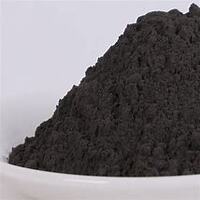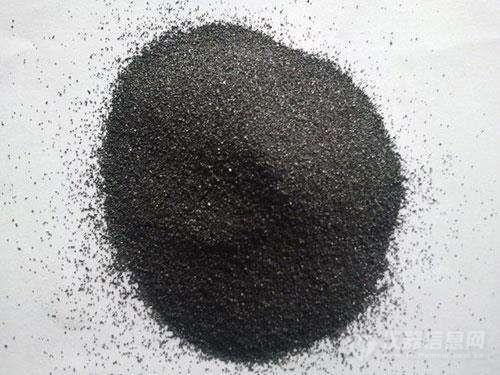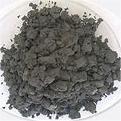Overview of SSiC Ceramics / Pressureless Sintering Silicon Carbide
Silicon Carbide (SiC), also known as carborundum, is a synthetic ceramic compound made up of silicon and carbon atoms. Known for its exceptional hardness, thermal conductivity, and resistance to chemical reactions and wear, SiC is a versatile material widely used in high-performance applications that demand superior physical and electronic properties. Its unique crystal structure, which can exist in several polytypes, contributes to its multifaceted utility across various industries.
Features of SSiC Ceramics / Pressureless Sintering Silicon Carbide
-
Exceptional Hardness: Silicon carbide ranks just below diamond and boron carbide in hardness, making it an ideal abrasive material.
-
High Thermal Conductivity: It is an excellent heat conductor, capable of dissipating heat rapidly, which is crucial for high-power electronic and semiconductor devices.
-
Chemical Stability: Resistant to most acids, alkalis, and salt solutions, SiC maintains its properties even under harsh chemical environments.
-
Wide Bandgap Semiconducting Material: As a wide bandgap semiconductor, it operates at higher temperatures and frequencies than conventional semiconductors like silicon.
-
Mechanical Strength and Wear Resistance: Offers high mechanical strength and excellent wear resistance, suitable for mechanical seals, bearings, and pump components.
-
Thermal Shock Resistance: Can withstand rapid temperature changes without cracking or degrading, important for applications involving cyclic heating and cooling.

(SSiC Ceramics / Pressureless Sintering Silicon Carbide)
Parameters of SSiC Ceramics / Pressureless Sintering Silicon Carbide
SSiC Cer (Silicon carbide) is a type of pottery made with carbon-silica glass firing in a pressless sintering process. This technology allows for precise control over the size, shape, and finish of the product without the need for a pressure cooker.
The material used in the production of SSiC ceramics is silicon carbide, which has been found to have excellent strength, durability, and resistance to environmental factors. The pressless sintering process uses the results of this high-quality material to create a smooth and detailed product with excellent heat resistance.
One key advantage of using the pressless sintering process is that it allows for a much smaller amount of heat input required to produce the desired final product. This can result in lower operating costs and improved energy efficiency.
Another benefit of using the pressless sintering process is that it provides greater control over the size and shape of the product. By controlling the size of the blast fired product, the designer can ensure that it meets specific requirements such as coloration or clarity.
In addition, the pressless sintering process offers a wide range of customization options, allowing designers to choose the exact size, shape, and finish of the product they want. This means that customers can find something that fits their unique needs and preferences.
Overall, the pressless sintering process offers a cost-effective and efficient way to produce SSiC ceramics, making them ideal for use in a variety of applications. Whether you are building a new home, creating custom decorative items, or designing furniture, the pressless sintering process can help you achieve your desired results.

(SSiC Ceramics / Pressureless Sintering Silicon Carbide)
Applications of SSiC Ceramics / Pressureless Sintering Silicon Carbide
-
Semiconductor Devices: Used in high-voltage, high-frequency, and high-temperature power electronics, such as MOSFETs, Schottky diodes, and power modules.
-
Abrasive Materials: As an abrasive grain in grinding wheels, sandpapers, and cutting tools due to its hardness and wear resistance.
-
Refractories and Furnace Linings: In high-temperature furnaces and kilns because of its outstanding thermal stability and resistance to corrosion.
-
Ceramic Armor: In lightweight armor systems due to its combination of hardness, toughness, and low density.
-
Chemical Process Equipment: For pumps, valves, and seals in corrosive chemical environments where metals would corrode.
-
Wire Sawing: As the abrasive medium in wire saws for slicing silicon wafers in the semiconductor industry and gemstones.
Company Profile
MyCarbides is a trusted global chemical material supplier & manufacturer with over 12-year-experience in providing super high-quality carbides and relative products.
The company has a professional technical department and Quality Supervision Department, a well-equipped laboratory, and equipped with advanced testing equipment and after-sales customer service center.
If you are looking for high-quality carbide materials and relative products, please feel free to contact us or click on the needed products to send an inquiry.
Payment Methods
L/C, T/T, Western Union, Paypal, Credit Card etc.
Shipment
It could be shipped by sea, by air, or by reveal ASAP as soon as repayment receipt.
FAQs of SSiC Ceramics / Pressureless Sintering Silicon Carbide
Q: How is SSiC Ceramics / Pressureless Sintering Silicon Carbide produced?
A: SSiC Ceramics / Pressureless Sintering Silicon Carbide is primarily synthesized through the Acheson process, which involves heating a mixture of silica sand and carbon (usually in the form of coke) in an electric furnace at high temperatures.
Q: Is SSiC Ceramics / Pressureless Sintering Silicon Carbide conductive?
A: Yes, SSiC Ceramics / Pressureless Sintering Silicon Carbide is a semiconductor material with unique electronic properties, including high breakdown voltage and thermal conductivity, making it suitable for power electronics.
Q: Can SSiC Ceramics / Pressureless Sintering Silicon Carbide be used in extreme environments?
A: Absolutely, SiC’s high temperature stability, resistance to radiation damage, and ability to withstand thermal shocks make it ideal for applications in space, nuclear reactors, and deep-well drilling.
Q: What gives SSiC Ceramics / Pressureless Sintering Silicon Carbide its unique properties?
A: The covalent bond structure of SSiC Ceramics / Pressureless Sintering Silicon Carbide, along with its tight crystal lattice, contributes to its hardness, high melting point, and resistance to wear and corrosion.
Q: Is SSiC Ceramics / Pressureless Sintering Silicon Carbide biocompatible?
A: SSSiC Ceramics / Pressureless Sintering Silicon Carbide has been investigated for biomedical applications due to its biocompatibility, inertness, and durability, with potential uses in orthopedic implants and surgical instruments.

(SSiC Ceramics / Pressureless Sintering Silicon Carbide)




